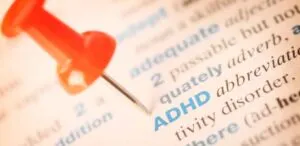Mood Disorder
It is characterized by a significant mood shift that disrupts daily activities. A mood disorder is a mental health condition that primarily impacts your emotional state. If you have particular types of mood disorders, your overall emotional state or mood is distorted or inconsistent with your circumstances and interferes with your ability to function. You could experience intense sadness, emptiness, irritability, or episodes of depression mixed with excessive happiness.
Your mood may fluctuate based on the conditions, which is natural. However, symptoms must be persistent for a few weeks or more in order to diagnose a psychological disorder. Types of mood disorders can cause changes in your behavior and make it difficult for you to carry out daily tasks like going to work or school.
What are Particular Types of Mood Disorders?
The many types of mood disorders are considered as follows
-
- Depression and its subtypes
-
- Bipolar disorder and its subtypes
-
- Premenstrual dysphoric disorder
-
- Disruptive mood dysregulation disorder

Depression
A common mental disorder is depression (either major or clinical depression). Sadness or hopelessness is one of the signs of depression. Additionally, the condition makes it difficult to think, remember, eat, and sleep properly.
There are several types of depression, including:
-
- Postpartum depression (peripartum depression): Pregnant women and new mothers experience this sort of depression during or after giving birth. After having a baby, they go through hormonal, physical, emotional, monetary, and social changes. These changes may contribute to postpartum depression symptoms. It may also have an impact on surrogates and adoptive parents.
-
- Persistent depressive disorder: PDD is a persistent mild to moderate type of depression. A person with PDD has a sad, dark, or low mood and two or more other symptoms of depression. This type of depression is persistent and must last for at least two years. Although it’s not as bad as major depressive disorder, it still exists.
-
- Seasonal affective disorder (SAD): Seasonal affective disorder (SAD) is a type of depression that’s triggered by a change in seasons. Usually, it begins in the late fall or early winter lasting until spring or summer. SAD episodes less frequently begin during the late spring or summer. They often decrease or disappear in the spring and summer. Seasonal affective disorder throughout the winter may present similar symptoms as serious depression.
-
- Depression with psychosis: This is a type of severe depression accompanied by psychotic symptoms including hallucinations (seeing or hearing things that other people don’t) or delusions (having fixed but false beliefs). Suicidal thoughts are more likely to occur in those who suffer from psychotic depression.
Bipolar Disorder
Bipolar disorder is a lifelong mood disorder and mental health condition that involves abrupt changes in mood, energy levels, thought processes, and behavior. There are a few different varieties of bipolar disorder, which are characterized by severe mood swings known as hypomanic/manic and depressed episodes. These shifts interfere with your ability to do daily duties and can last for a few minutes or several days, weeks, or even months.
There are four types of bipolar disorder, including:
-
- Bipolar I disorder: People who have bipolar I disorder have gone through one or more manic episodes. Mania is a disorder in which you experience dramatic changes in your emotions, thoughts, energy, talkativeness, and activity level. You may also experience a time of excessively high or irritated mood. Although most patients with bipolar I will have both manic and depressive episodes, a depressive episode is not required for a diagnosis.
-
- Bipolar II disorder: Similar to bipolar I, this disorder causes periods of depression. A person with this illness also experiences hypomania, which is a less severe form of mania. Manic episodes are more severe and disruptive than hypomanic phases. A person with bipolar II illness is often capable of managing everyday responsibilities.
-
- Cyclothymia disorder (cyclothymia): A milder form of bipolar disorder is called cyclothymia (cyclothymic disorder). It includes repeated hypomanic and depressive episodes with mood swings. Cyclothymic disorder patients have persistent mood instability. They go through moderate sadness and hypomania for at least two years.
-
- Other specified and unspecified bipolar and related disorders: This form of bipolar disorder has symptoms that don’t fit any of the other categories, yet patients nevertheless experience major abnormal mood fluctuations.
Other Mood Disorders
Other types of mood disorders include:
-
- Premenstrual dysphoric disorder (PMDD): This kind of mood disturbance starts seven to ten days prior to menstruation and disappears a few days after the menstrual cycle begins. It’s a more serious form of premenstrual syndrome (PMS). According to researchers, hormonal changes are thought to be the cause of this condition related to the menstrual cycle. Symptoms may include anger, irritability, anxiety, depression, and insomnia.
-
- Disruptive mood dysregulation disorder (DMDD): Children and teenagers are affected by DMDD. It is a disorder of chronic, severe, and persistent irritability in children that often includes frequent temper outbursts that are inconsistent with the child’s developmental age. DMDD is more severe than an intermittent explosive disorder (IED), and anger is present most of the time, occurring before the age of 10.
What are the symptoms of mood disorders?
Types of mood disorders have different signs and/or different patterns of symptoms. Symptoms of different types of mood disorders frequently interfere with your ability to think clearly, sleep, eat, and feel energetic.
-
- Irritability, hostility, or aggressiveness
-
- Persistent sadness, emptiness, or anxiety
-
- Changes in weight or appetite
-
- Changes in sleeping habits
-
- Difficulty concentrating
-
- Feeling down almost all of the time or almost daily
-
- Lack of energy
-
- Feeling hopeless or unworthy
-
- Loss of interest in once-enjoyable activities
-
- Thoughts about death or suicide
Symptoms of hypomanic or manic episodes typically include:
-
- Feeling extremely energized or happy
-
- Rapid speech or movement
-
- Impatience, anxiety, or restlessness
-
- Risk-taking behavior
-
- Racing thoughts
-
- Insomnia or difficulty falling asleep
Novus Beginning Psychiatry: Your Path to Health and Wellness Starts Here!
We understand that navigating the complexities of mental health can feel overwhelming, but you don’t have to face it alone. At Novus Beginning Psychiatry, we’re here to support you every step of the way. Whether you’re seeking therapy, medication, or a combination of both, our compassionate professionals are dedicated to helping you find the path to a happier, healthier life.
Our highly skilled psychiatrists are experienced in a wide range of mental health conditions, including anxiety, depression, bipolar disorder, OCD, PTSD, ADHD, autism, different types of trauma, and more. We offer evidence-based therapies that have been proven effective in helping individuals overcome their challenges. From cognitive-behavioral therapy (CBT) to couples/family therapy, we utilize the most up-to-date techniques to empower you on your healing journey.
We also recognize that medication is vital in managing certain psychological health conditions. Our team includes Dr. Nibras, who is a board-certified psychiatrist well-versed in medication management. He works closely with you to develop a comprehensive treatment plan, as we believe in the power of personalized care.
So, take the first step towards a brighter future. Contact us today to schedule an appointment. Our friendly staff is ready to assist you in finding a convenient time to meet with our dedicated professionals. Call (832)856-4718 and let us help you take charge of your mental well-being.
Medication Management For Psychiatric Wellness
At Novus Beginning Psychiatry, we’re dedicated to helping you unlock the power of effective medication management. Our team of psychiatrists has years of experience and understands the importance of finding the right balance for your mental health journey. We offer personalized and compassionate care, creating medication plans that are tailored to your unique needs. Our understanding of psychopharmacology allows us to provide the most advanced and evidence-based treatments available.
Our goal is to help you by providing the right medications to enhance your therapy outcomes, reduce your symptoms, and improve your overall well-being. We want to be your trusted partner on the path to a brighter future. Please don’t hesitate to contact us at Novus Beginning Psychiatry to experience the transformative effects of our comprehensive medication management approach.
Who is Dr. Nibras?
Dr. Sohail Nibras is a double board-certified psychiatrist in child, adolescent, and adult psychiatry. He completed his education at Saint Louis University and the American University of Integrative Science. He excels in treatments based on psychiatric care and therapeutic sessions and has experience treating dual psychiatric and substance use disorders. He is an assistant professor at the Menninger Department of Psychiatry and Behavioral Sciences at Baylor College of Medicine in Houston, Texas. He serves as an attending psychiatrist at Texas Children’s Hospital. He trains future psychiatrists and engages in scholarly research projects.
Visit us
Come and visit us at one of our locations in-person or meet us via telepsychiatry/online!
We’re here to help in Texas, ready to meet you in person. If you’re unable to make it in person, don’t worry, we’re also available online, so you can meet us easily from the comfort of your own home. Whether you prefer to see us face-to-face or connect with us online, we’re here to assist you every step of the way.
Address in Sugar Land
120 Eldridge Rd Suite D, Sugar Land, TX 77478
Address in Katy
23410 Grand Reserve Drive, Ste. 401 & 402 Katy, Texas 77494



